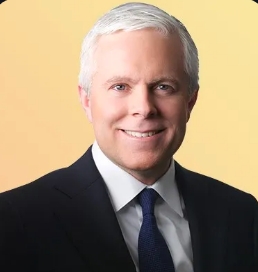The following was contributed by Tom Webster, Chief Commercial Officer for Sentry Funding.
The UK government is seeking views on the operation of litigation funding in the collective actions sphere, as part of its wider review of the opt-out collective actions regime in competition law.
An open call for evidence by the Department for Business & Trade (DBT) earlier this month featured a number of questions relating to litigation funding. These included whether the approach to funders’ share of settlement sums or damages is fair and proportionate; how the secondary market in litigation funding has developed and whether this has affected transparency and client confidentiality; whether funding provision for the full potential cost of claims is considered enough at the outset; and how conflict between litigation funders and class representatives should be approached.
As well as funding issues within the regime, the review will also look at scope and certification of cases; alternative dispute resolution, settlement and damages; and distribution of funds.
The DBT said it was time to review the operation and impact of the opt-out collective actions regime in competition law, as it is now ten years since its introduction through the Consumer Rights Act 2015.
It said: ‘This government is focused on economic growth, and a regime that is proportionate and focused on returns to consumers where they are due is good for growth and investment.
‘However, we are aware of the potential burden on business that increased exposure to litigation can present. Finding the right balance between achieving redress for consumers and limiting the burden on business is essential to ensure that businesses can operate with certainty, whilst providing a clear, cost-effective, route for consumers.’
Providing background to its review, the DBT noted that when it was introduced in 2015, the regime was intended to make it easier for consumers, including businesses, to seek redress where they have suffered loss due to breach of competition law. It said that since then, the regime has developed and expanded significantly: ‘tens of billions’ of pounds in damages have been claimed, and ‘hundreds of millions’ of pounds spent on legal fees. The DBT said this was far higher than anticipated in the original impact assessment, which estimated the total cost to business to be just £30.8 million per annum.
The DBT also noted that the type of case being brought before the CAT has also developed in ‘unexpected’ ways. When the regime was introduced, it was expected that most cases would be follow-on claims, brought after the Competition and Markets Authority (CMA) or European Commission have already investigated anti-competitive behaviour and made an adverse finding. However, approximately 90% of the current caseload is now made up of standalone cases, the DBT said.
The government also pointed out that only one case (Justin Le Patourel v BT Group Plc [2024] CAT 76) has reached judgment in the CAT, with other certified cases generally concluding in settlement outside of court. This means that there has been limited precedent set on key issues such as damages and distribution, it asserted.
Proponents of the collective actions regime have pointed out that it is still relatively new, and has been subject to much challenge by defendants. But while it will inevitably take time to bed in, they argue that the regime is already effective in improving corporate behaviour and levelling the playing field for consumers.
The government said its review will also take into account existing work relevant to the regime, such as the Civil Justice Council (CJC)’s recent report on litigation funding.
Its call for evidence will close on 14 October.

















